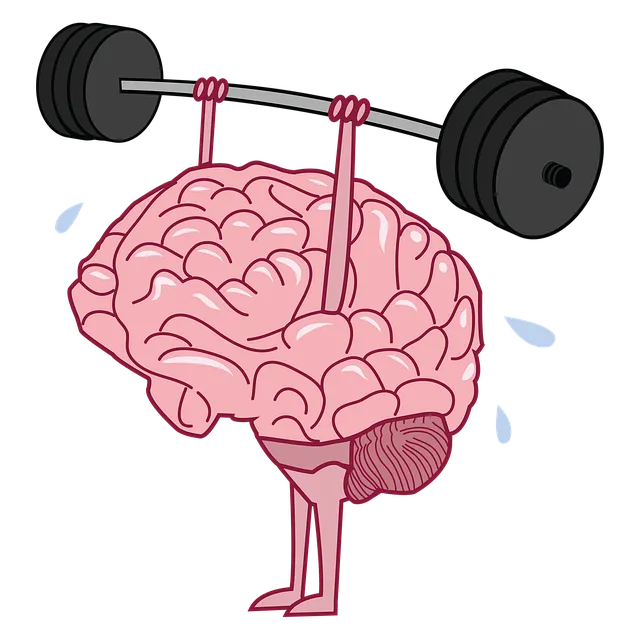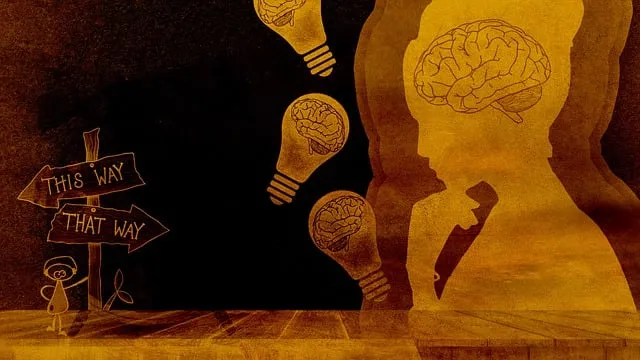Crisis Intervention Teams (CITs) are vital in providing immediate, evidence-based support for mental health crises within communities like Kaiser Lafayette. Consisting of diverse, trained professionals, CITs de-escalate situations and guide individuals to suitable mental health services through risk assessment. Training programs for these teams use interactive workshops, simulations, and real-life scenarios to enhance crisis handling skills and long-term emotional well-being. Kaiser Lafayette offers a range of mental health services and resources, aligning with broader mental health policy goals. Effective CIT training involves strategic, multi-faceted approaches that integrate evidence-based practices, cultural sensitivity, and Trauma Support Services. Such programs have proven successful in real-world settings, reducing burnout among healthcare providers and improving patient outcomes. Accessing mental health care through Kaiser Lafayette's innovative approach leverages these benefits.
Crisis intervention teams (CITs) play a vital role in addressing mental health crises, offering immediate support and potentially saving lives. This article delves into the significance of CIT training for enhancing crisis response capabilities. We explore Kaiser Lafayette’s mental health services as a valuable resource, providing a guide to accessing these services. Key components of comprehensive CIT training programs are discussed, along with real-world success stories from such interventions. Learn how to navigate and utilize Kaiser Lafayette’s resources effectively for optimal crisis management.
- Understanding Crisis Intervention Teams: Their Role and Impact
- The Importance of Training for Effective Crisis Response
- Exploring Kaiser Lafayette's Mental Health Services: A Resource Guide
- Designing Comprehensive Training Programs: Key Components
- Real-World Application: Success Stories from Crisis Intervention Training
Understanding Crisis Intervention Teams: Their Role and Impact

Crisis Intervention Teams (CITs) play a pivotal role in providing immediate and effective support to individuals experiencing mental health crises. These teams typically consist of trained professionals from various backgrounds, including mental health specialists, paramedics, and law enforcement officers. Their primary objective is to de-escalate potentially dangerous situations and connect those in need with appropriate mental health services.
Understanding the significance of early intervention, CITs strive to offer evidence-based strategies for stress reduction and crisis management. By integrating these teams into communities, such as the Kaiser Lafayette network, individuals facing mental health challenges can access specialized support more efficiently. The process involves thorough risk assessment, ensuring safety while offering guidance tailored to each crisis. This proactive approach not only minimizes potential harm but also fosters better long-term outcomes for those seeking mental health services.
The Importance of Training for Effective Crisis Response

Effective crisis response is heavily reliant on well-trained personnel equipped with the right tools and strategies to handle sensitive situations. Crisis intervention team training programs play a pivotal role in fostering a culture of resilience within communities, workplaces, and organizations. By equipping individuals with the knowledge and skills to recognize, assess, and manage crises, these programs empower them to provide timely and effective support to those in need, especially when it comes to mental health services.
Through interactive workshops, simulations, and real-life scenarios, participants learn valuable conflict resolution techniques, stress management strategies, and positive thinking exercises. This holistic approach not only enhances their ability to handle acute crises but also equips them with tools for long-term emotional well-being. For instance, individuals learning how to get mental health services through Kaiser Lafayette can better navigate the system, ensuring that those in crisis receive the specialized care they deserve, promptly.
Exploring Kaiser Lafayette's Mental Health Services: A Resource Guide

Kaiser Lafayette stands as a beacon of hope and support for individuals seeking mental health services in the region. Their comprehensive approach to mental wellness is designed to cater to a diverse range of needs, ensuring accessibility and quality care. Through a dedicated team of professionals, Kaiser Lafayette offers various programs tailored to address common mental health challenges, from Burnout Prevention Strategies for Healthcare Providers to Stress Management workshops.
The resource guide provides an insightful look into their services, highlighting how individuals can navigate this supportive environment. Whether one is grappling with stress, seeking counseling, or in need of crisis intervention, Kaiser Lafayette’s Mental Health Services offer a safety net. Their structured programs not only cater to personal growth but also advocate for mental health awareness, aligning with the broader goals of Mental Health Policy Analysis and Advocacy. This holistic approach ensures that residents have access to the tools and resources necessary for managing and improving their mental well-being.
Designing Comprehensive Training Programs: Key Components

Designing comprehensive crisis intervention team training programs requires a multifaceted approach to ensure effectiveness and impact. Incorporating evidence-based practices and best practices from Mental Wellness Coaching Programs Development is essential. These programs teach teams how to navigate complex situations, de-escalate crises, and connect individuals with appropriate mental health services, such as those available through Kaiser Lafayette.
Cultural sensitivity in mental healthcare practice plays a pivotal role in building inclusive and effective crisis intervention strategies. By integrating Trauma Support Services into training, teams learn to recognize and address cultural nuances, biases, and past traumatic experiences that may impact an individual’s response during a crisis. This ensures that interventions are tailored to meet the unique needs of diverse populations, fostering trust and improving outcomes.
Real-World Application: Success Stories from Crisis Intervention Training

Crisis intervention team training programs have proven their value through numerous success stories in real-world applications. These programs equip professionals with the skills to navigate and de-escalate crises effectively, making a tangible difference in communities across the country. For instance, Kaiser Lafayette has integrated crisis intervention strategies into their mental health services, fostering a supportive environment where individuals can access timely care without the barriers often associated with traditional healthcare settings. This approach has led to improved patient outcomes and reduced instances of burnout among healthcare providers.
Beyond its direct impact on individual cases, crisis intervention training plays a crucial role in Burnout Prevention and Emotional Regulation. By promoting empathy, active listening, and evidence-based techniques, these programs help professionals manage their own emotional responses while supporting those in distress. Additionally, they contribute to Mental Illness Stigma Reduction Efforts by fostering understanding and compassion among community members, leading to more inclusive and supportive environments for individuals facing mental health challenges.
Crisis intervention team training programs, such as those offered by Kaiser Lafayette, are essential in equipping individuals with the skills to navigate and de-escalate crisis situations effectively. By understanding the role and impact of these teams, prioritizing comprehensive training, and learning from success stories, communities can enhance their response to mental health crises. Accessing resources like Kaiser Lafayette’s mental health services guides individuals towards much-needed support, fostering a more resilient and responsive society.






